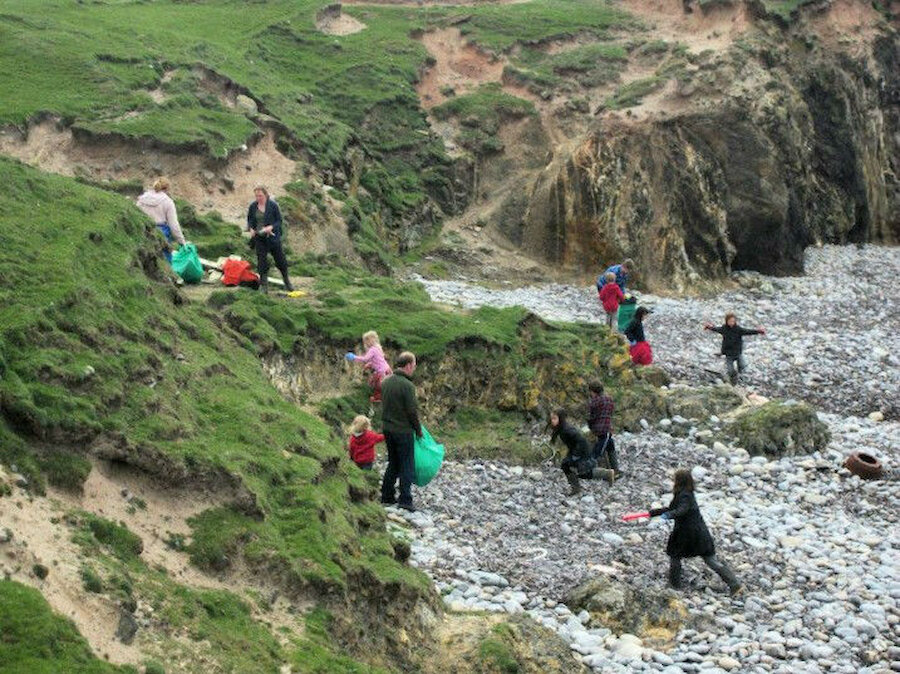Shetland's long-running annual litter clear-up and a marine environment and tourism project in Fair Isle are among the finalists in RSPB Scotland's Nature of Scotland Awards.
The annual Voar Redd-Up (Spring tidy-up) is the UK's most successful litter pick. A testament to the strength of the community, it involves around 4,000 people or a fifth of Shetland's population. Each Spring since 1988, volunteers have cleared rubbish that has accumulated over the winter from miles of beaches and roadsides. Detailed records are kept and these show that more than 1,500 tonnes of litter have been collected over the years. It's a fixture in the Shetland calendar and there's no question that it's made a huge difference to the islands" environment.
Fair Isle is Britain's remotest inhabited island, lying midway between Sumburgh Head in Shetland and the island of North Ronaldsay in Orkney, roughly 25 miles from each. Owned by the National Trust for Scotland, it has a thriving community of around 70 people. Since the late 1980s, islanders have been concerned about trends in the marine environment, particularly in industrial fishing, over which they felt they had little or no influence, and the Fair Isle Marine Environment and Tourism Initiative (FIMETI), led by Nick Riddiford and begun in 1996, seeks to promote a responsible approach to marine management. The background to the project is explained on the FIMETI website.
The RSPB Awards recognise national projects and local heroes, working hard to protect and enhance the natural heritage. The shortlist represents a cross section of businesses, charities, the public sector and individuals working toward conserving the country's unique wildlife and natural environment. Awards in eight categories will be announced in Edinburgh on 30 October this year.

